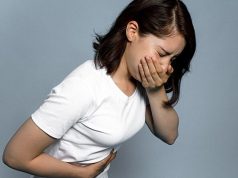For many of us, starting the day without a cup of coffee is unthinkable.
But in some cases, when we are taking certain medications in the morning, it is better to wait a while before ingesting the longed-for beverage.
Some medicines can be taken at different times of the day. It is also recommended not to take them with caffeine-containing liquids.
„There are approximately 60 drugs that can interact with caffeine. Antonio Javier Carcas Sansuán, professor of Pharmacology at the Autonomous University of Madrid. Tells BBC Mundo, although most of these interactions are mild.
Why some medicines should not be taken with coffee or caffeinate beverages
When we take a drug, it takes a journey through our body and, once in the stomach or intestine, it passes into the bloodstream and is then distributed throughout the body.
„That drug has to reach the place where it will perform the action for which it was designed, its pharmacological target,” Elena Puerta Ruiz de Azúa. Professor of pharmacology at the University of Navarra, tells BBC Mundo.
Think of that target as the strategic point for treating an ailment, the protein within our body. The receptor that the drug is going to activate or block – on which it will exert its effect.
And for it to do that, it needs to be absorbe and distribute efficiently.
Why some medicines should not be taken with coffee or caffeinate beverages
After that, the drug has to be metabolise, that is, eliminated from the body. The main organ in that process is the liver, which is in charge of purifying our body.
But what if coffee adds to that journey? It depends on the drug and its purpose.
In the brain
Remember that caffeine is a central nervous system stimulant. Which can cause nervousness and high blood pressure.
If we are talking about a drug intende to produce a sedative or tranquilising effect. Mixing it with coffee or a caffeinate beverage will be harmful because it will counteract the effects of the drug.
Several of these drugs belong to the benzodiazepine family. Which are use in the treatment of, for example, anxiety and insomnia.
„The caffeine would reach the brain at the same time as this drug,” says Puerta.
„So you would get the stimulus of the caffeine on the one hand and the relaxing action of the drug on the other – opposite effects.
„The administration of those drugs together with caffeine-rich drinks is absolutely discourage because you are taking. Through the coffee or cola drink, a molecule that does exactly the opposite of what the drugs are trying to do.
In addition, some drugs use the same enzymes and proteins as caffeine to metabolise in the liver. So there is a kind of interference that could result in the drug accumulating in the body more than necessary.
For some drugs, this increase in plasma concentration irrelevant because they have a wide safety margin. For other very specific drugs. Such as those prescribe for schizophrenia. Where optimal drug concentrations are essential for treatment, it can be a risk,” warns the expert.
„These are drugs that it doesn’t matter if there is a little more concentration. It can be dangerous to increase it.
Caffeine, Carcas points out, can modify the effect of some drugs by increasing or decreasing it.
There are also drugs that inhibit the metabolism of caffeine by blocking the action of the enzyme responsible for that process.
An example of this is some antibiotics such as quinolones.
„What can happen is that the drug inhibits or decreases the metabolism of caffeine and therefore increases the concentrations of caffeine in the body and the effect of the caffeine is greater,” he says.
A question of absorption
It is also recommended that some drugs, such as the one use to treat hypothyroidism. Should on an empty stomach.



